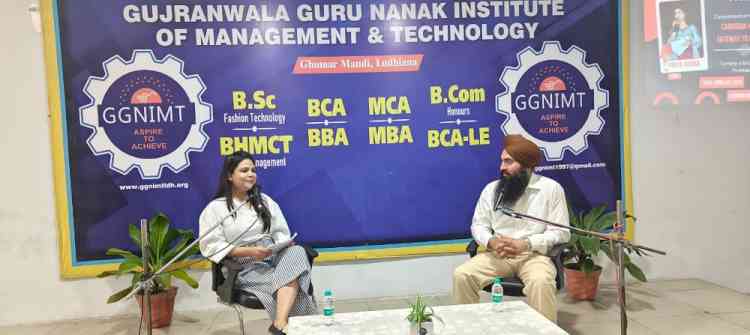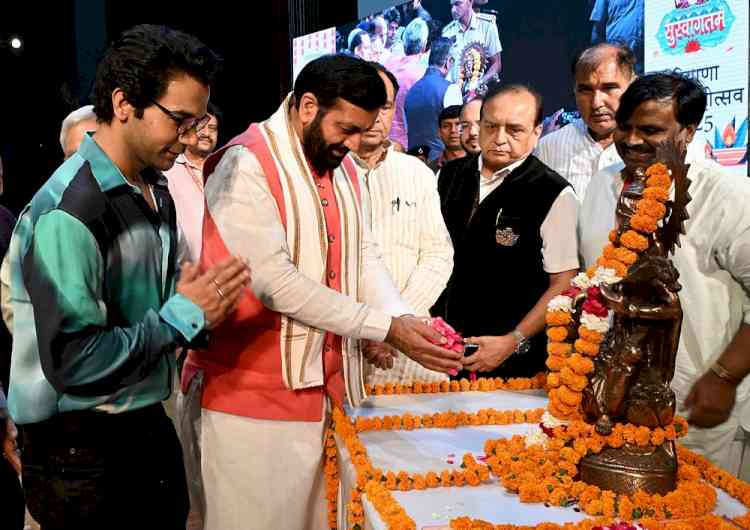PU gives clarifications on recommendations of Governance Reforms Committee
Says in order to dispel the doubts created by factually incorrect reporting and statements, clarifications are being issued

Chandigarh: On various news channels and social media posts, the recommendations of Governance Reforms Committee of Panjab University are being telecasted. The representatives of various organizations as well as the stakeholders of PU are also discussing these recommendations on various public forums. In these posts and discussions, statements and views are being expressed, which are factually incorrect and not in consonance with the report and thus the recommendations of the Committee are inappropriately reaching the stakeholders. In order to dispel the doubts created by such factually incorrect reporting and statements, following clarifications are being issued to public at large through media, according to a press release issued by Panjab University today.
Statement -- Stakes of the State of Punjab are being diluted in PU Governance.
Clarification– In the present PU Act, the State of Punjab is represented in the Senate/ Syndicate through various ex-officio positions of State Government of Punjab, i.e., the Chief Minister, the Education Minister, Secretary, Higher Education/ DPI Colleges and two members from the State Assembly. In the report, all these ex-officio positions of Government of Punjab have been kept intact and therefore there is no dilution so far as the participation of the State Government of Punjab is concerned in the Governance of PU.
Statement—Territorial jurisdiction of PU is being restricted to only Mohali and Roopnagar.
Clarification—The Governance Reforms Committee has recommended the realignment of the territorial jurisdiction of Panjab University in such a way so that the colleges falling in the immediate vicinity of Panjab University Campus can be affiliated to it. This recommendation has been made only for the convenience and benefits of the students and research scholars, studying/working in the colleges, situated in Mohali and Roopnagar. Similarly, the students in the colleges, which are situated at far off places (more than 200 to 250 kilometres away from Panjab University Campus) may get better services from a university situated in their close proximity. This recommendation is not at all restricting or de-affiliating colleges, situated in Ludhiana, Khanna, Moga, Balachour, Nawashehar, Hoshiarpur, etc. Therefore, the statement that realignment of territorial jurisdiction will limit jurisdiction of PU only to Mohali and Roopnagar is factually incorrect.
Statement— In the report the Vice Chancellor is being given the power to nominate members of Senate and Syndicate.
Clarification—In the proposed structure of Senate and Syndicate, the power to nominate members on the Senate vests with the Hon’ble Chancellor as in the existing PU Act. However, the Governance Reforms Committee has unanimously recommended to curtail the number of nominated members to 18 from the present 36, so as to have a lean and efficient governance structure.
Statement—Instead of elected Principals and Teachers from affiliated colleges, the Vice Chancellor is being given power to nominate members on the governing bodies of the Punjab University.
Clarification— The existing governance structure of Panjab university is combination of ex-officio, elected and nominated members. The Governance Reforms Committee has recommended the same structure, with all three components as such. But, the Committee has recommended downsizing of these bodies for enhanced efficiency. The existing 93-member body of Senate has been proposed to be of 47 members. Similarly, the number of members of Syndicate has been recommended to be of 13 members instead of 18. However such downsizing has been recommended without compromising the democratic spirit of functioning of PU as the proposed Senate and Syndicate also have representation of elected Principals and teachers of affiliated colleges of the State of Punjab as well as in Chandigarh besides the elected representatives of Teachers of PU Campus. For the constitution of Syndicate, the appointment of members have been recommended on the basis of seniority by rotation so that the teachers from Panjab University Campus, Regional Centres, affiliated Colleges, including Principals are given equal opportunity to participate in the governance of Panjab University in a most efficient manner. Therefore, it is factually incorrect to say that the Vice Chancellor is being given the power to nominate the members of Senate and Syndicate.
Regarding ‘Registered Graduate Constituency’ –
It may be relevant to mention that in none of the Universities of the State of Punjab, the ‘Registered Graduates constituency’ exists. The obvious reason is that the election process of this constituency is a very complex and cost intensive exercise for any educational Institution to carry on. In PU, it involves more than 3.5 lac voters spread over 5 states, namely Punjab, Haryana, Himachal, Uttarakhand, Rajasthan and two Union Territories, i.e., Delhi and Chandigarh. Moreover, the concept of having ‘Registered Graduates Constituency’ in Universities was relevant only till 1960s when PU was conducting Matriculation and Intermediate examinations. However, ever since the constitution of Punjab State Education Board, such examination do not come in the purview of Universities. Therefore, in the contemporary education system in Universities the concept of ‘Registered Graduates Constituency’ is no more relevant. Therefore, keeping in view the model of governance structure of other Universities of the State of Punjab, it was recommended to have ‘Eminent Alumni’ of Panjab University on the governing bodies of PU instead of ‘Registered Graduates Constituency’.
In nutshell, the overall governance structure has been proposed by the Committee to remove complexities of the system and bring efficiency, keeping in view the contemporary needs of higher education system of the country.


 cityairnews
cityairnews 








